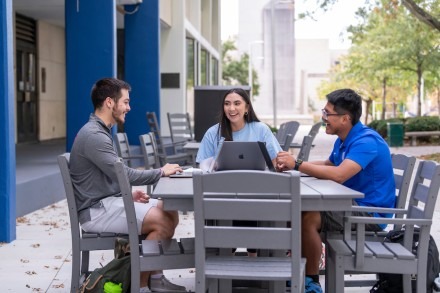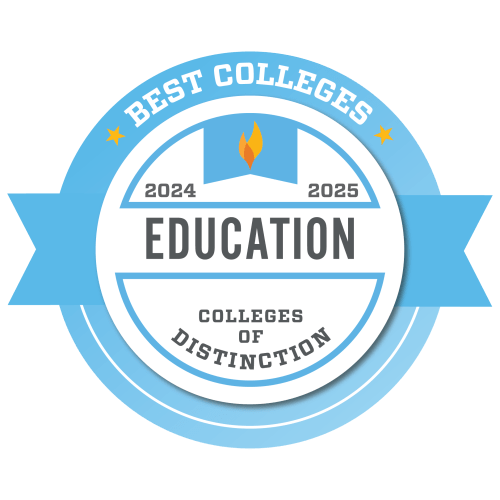Rockhurst's educational studies degree prepares students for a variety of career opportunities in education that don’t require a teaching license.


Program Overview
Image

The educational studies program at Rockhurst fits students who want to work in educational policy, teach internationally, work with youth in non-school settings or have found that the traditional classroom is not a good fit during their studies to become a teacher.
The foundational coursework in this Bachelor of Arts program provides insight into the current and future state of education, while the electives will allow students to personalize the program to meet their interests. In addition, the program includes an internship/capstone experience that is personalized to align with the student’s career goals.
Educational studies majors go on to develop educational programs or curricula and work in various informal learning environments, corporate settings and nonprofit organizations. And the educational studies degree will better prepare students to be successful should they later choose to pursue teaching certification.
Learning Outcomes
- Knowledge of how others learn, develop and differ in approaches to learning.
- Provide learning opportunities that support the intellectual, social and personal development of all.
- Model effective verbal, nonverbal and media communication techniques with students, colleagues and families to foster active inquiry, collaboration and supportive interaction.
- Use assessment strategies to plan ongoing development using evidence-based decision-making.
- Ability to reflect, continually assessing the effects of choices and actions on others.
Program Outcomes
Career paths for students with an educational studies degree include:
- Program coordinator
- Program director
- Student success coach
- Events coordinator
- Paraprofessional
Course Map
Degree and class descriptions and requirements can be found by clicking on the course catalog listings below:
Popular Courses
Students observe a K-12 classroom in a diverse setting, reflect on this field observation, and then synthesize it with course readings and class discussions. On-campus sessions develop students’ ability to analyze and place these experiences into the broader cultural context that is the 21st-century classroom. Students will examine trauma-informed teaching practices, culturally relevant pedagogy, and socioeconomic effects on student populations.
Preservice teachers will re-conceptualize mathematical concepts and develop skills reasoning with various representations while building knowledge and critically examining the complexities of elementary school mathematics instruction. Focus will be given to reasoning about shapes, symmetry, transformation geometry, and reasoning about chance and data. Time will be spent on the use of concrete learning aids and the use of student interviews/conferencing, which will facilitate discussion and development of knowledge related to methods of remediating math difficulties.
Instruction focuses around problem-solving strategies that allow students to gain meaning from critical interpretation of text in varying contexts, whether print or digital. These differentiated strategies address all types of students that will populate a diverse, modern classroom: English language learners, special education students, and students performing above or below grade level.
Students will develop proficiency with a wide range of software applications and examine and evaluate educational software programs, examine emerging information technologies that show promise in the field of education and explore how these technologies might be of assistance in meeting the needs of diverse learners through differentiated learning. Students will learn how to identify and select appropriate technology for purposeful curriculum and instructional planning. This course requires service learning hours.
Degree Info
- During courses, students will have the opportunity to be placed in diverse K-12 educational settings and complete tasks to connect theory and practice as they develop knowledge and skills for curriculum and instruction.
- This hybrid on-campus and online education degree gives students an opportunity to design and complete a capstone project (with mentoring) relevant to their personal professional development goals.
Find Your Program
Choose topic to quickly find specific program details
